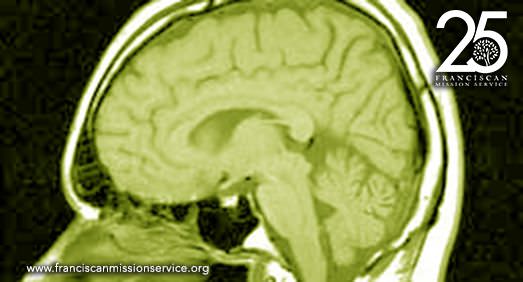Learning About Cognitive Development

Second-year missioner Valerie Ellis shares about one of her ministry sites in Bolivia.
I love working at Comunidad Educativa Para La Vida (CEV), a school in Chilimarca, Bolivia, dedicated to giving children in poverty a healthy start at life. It has a strong commitment to comprehensive childhood development and the protection of human rights.
Recently I attended a three-day workshop for teachers and staff. Although I have heard the same presentation on cognitive development in the stages of early infancy through childhood at least five times, I never grow tired of it. The theme of the presentation was cognitive development in the stages of early infancy through childhood.
Some shocking statistics that take my breath away every time I hear them:
- We are born with 100 billion neurons
- Each neuron has the capacity of connecting with 10-15,000 other neurons
- 700 new connections are formed every second in the first two years of our lives
- From birth to age 2, the brain already weighs ¼ to ¾ of what an adult brain weighs
- Brain neurons that are not used atrophy, and children who suffer abuse and neglect develop less connections than children with secure emotional attachments
- We have the ability to re-generate a portion of what was lost through healthy lifestyle choices (See this video for more information).
What are the take-away points from the workshop?
- The way we respond to babies and children, especially with emotional support, has drastic positive or negative effects for their development
- The way we interact with babies and infants not only affects them: studies have shown that adults who have strong connections with babies and infants have positive changes on the adults’ brains
- Not only are the first five years (what we call the formative years) crucial, but there are two other extremely important timeframes:
- The first two hours after a baby is born
- The first two years of a child’s life
I am so fortunate to work in an educative community in Bolivia that not only is progressive, but that is progressive for the right reasons: to assist in the development of healthy children and adolescents with a vision of creating a better future and a better world. By focusing on creating healthy and violence free infants, not only do we have the ability to change their futures, but the future of everyone in their paths!
Feature image: adaptation of photo by Wikimedia user Ranveig – Creative Commons
Tagged in:
